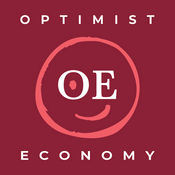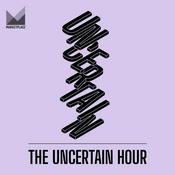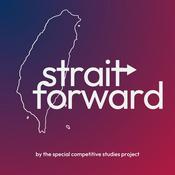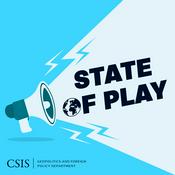161 episodes
- Vietnam is often held up as one of the world’s standout development success stories—rapid growth, dramatic poverty reduction, and a transformation from low-income to middle-income status within a single generation. But what happens when success starts to produce new tensions: rising inequality, changing public services, mounting pollution, and a consumption boom that reshapes everyday life?
Dan Banik is joined by Arve Hansen, Research Professor at the University of Oslo’s Centre for Global Sustainability and author of Consumption and Vietnam’s New Middle Classes: Societal Transformations and Everyday Life (2022, Palgrave). Together, they explore Vietnam’s development model after Đổi Mới and the paradox of an officially socialist, one-party state delivering a globally integrated “market economy with a socialist orientation.”
Rather than staying at the level of GDP and policy slogans, the conversation moves into the lived experience of development: mobility and the motorbike society, the rising status of car ownership, urban change, air quality, and how shifting diets and “meatification” reflect new middle-class aspirations. Dan and Arve also discuss Vietnam’s push for greener growth and electrification, the politics of land and infrastructure, and why sustainability transitions can become socially and politically sensitive.
Finally, the episode situates Vietnam in today’s unstable global economy (e.g., trade shifts, geopolitics, and growing pressure to diversify) while asking what the next phase of development could look like as Vietnam tries to avoid the middle-income trap and sustain progress in a warming world.
Host:
Dan Banik
LinkedIn
X: @danbanik @GlobalDevPod
Subscribe:
Apple Spotify YouTube
https://in-pursuit-of-development.simplecast.com - Electricity is often treated as a basic development milestone. But in large parts of the African continent, the deeper challenge is not only connecting people to the grid, but ensuring power is affordable and reliable enough to support jobs, industrialization, and economic transformation. This episode explores what energy poverty really means, why progress is uneven across regions, and what it would take to move from “first access” to true “energy for growth.”
Todd Moss is founder and executive director of the Energy for Growth Hub. He is a widely recognized expert on energy, development finance, and foreign policy and writes the popular Substack Eat More Electrons. Todd previously served as U.S. Deputy Assistant Secretary of State for African Affairs.
The conversation begins with a critical distinction: electricity “access” can mask a much larger problem of unreliable supply. Todd argues that billions of people live with power that exists on paper but fails in practice as outages, high tariffs, and weak grids erode the benefits electrification is supposed to deliver. From there, Todd and Dan unpack the persistent tension between household electrification and powering firms. Dan raises the moral and political case for universal household access, while Todd makes the argument that job creation requires a different kind of electricity (dense, dependable, and scaled for industry) alongside the off-grid solutions that can improve welfare quickly.
They then turn to policy and investment. Why do so many countries remain stuck with utilities that are not creditworthy? What makes large generation projects “bankable,” and why do credible offtakers and guarantees matter so much? Todd explains how renewed global interest in critical minerals could become an anchor for bigger energy systems, especially if governments negotiate strategically and use mining and processing to unlock broader infrastructure that supports non-mining sectors too.
The episode also widens out to geopolitics and development finance, including what is changing in Washington and what new tools (particularly U.S. development finance) might mean for energy investment going forward. Finally, Dan and Todd tackle nuclear power: why it remains controversial, why new small modular designs are changing the conversation, and what the long-term geopolitical risks look like when nuclear fuel and technology can tie countries into decades-long dependencies.
Resources:
Eat More Electrons Substack
Energy for Growth Hub website
Global Market for Advanced Nuclear Map
Who in Africa is Ready for Nuclear Power?
PPA Watch
Host:
Dan Banik
LinkedIn
X: @danbanik @GlobalDevPod
Subscribe:
Apple Spotify YouTube
https://in-pursuit-of-development.simplecast.com - As the year comes to a close, this special year-end episode of In Pursuit of Development offers a reflective look back at the conversations that have shaped Season 6 so far. Host Dan Banik brings together the main ideas, debates, and tensions explored across the season, drawing connections between discussions on the rise of the Global South, shifting power in a multipolar world, democratic resilience, and the growing strain on multilateral institutions.
The episode revisits how development thinking is being challenged by shrinking aid budgets, climate change, energy insecurity, and widening global inequalities, while also exploring the promises and risks of new technologies such as artificial intelligence. Throughout the reflection, Dan emphasizes the importance of human development, accountability, and solidarity in an increasingly complex global landscape.
Looking ahead, the episode outlines key themes the podcast will tackle in the new year, including energy promotion and energy security, the intellectual foundations of development thinking, consumption and development linkages, the role of activism, AI and development, and a journalist’s perspective on global development. This episode is both a guide for listeners who want to catch up on Season 6 and an invitation to join the ongoing conversation about where global development is headed next.
Host:
Dan Banik
LinkedIn
X: @danbanik @GlobalDevPod
Subscribe:
Apple Spotify YouTube
https://in-pursuit-of-development.simplecast.com - Dan Banik and Florian Krampe explore how climate change is reshaping development and security debates -- not as a single cause of conflict, but as a force that intensifies existing vulnerabilities in fragile and conflict-affected contexts. Moving beyond environmental impacts alone, the discussion examines how climate stress interacts with poverty, inequality, weak governance, and insecurity, with far-reaching consequences for livelihoods, stability, and peace.
Dr. Florian Krampe is Director of Studies for Peace and Development at the Stockholm International Peace Research Institute (SIPRI). Together, Dan and Florian discuss why climate action and development priorities are too often treated as separate agendas, how shrinking aid budgets and unequal access to climate finance undermine resilience in low-income countries, and why rising defense spending risks crowding out investments in health, energy, education, and climate adaptation.
The episode also turns to Europe’s changing security landscape and the growing disconnect between military preparedness and broader understandings of security. Drawing on research and real-world examples, the conversation explores environmental peacebuilding and asks when climate-related interventions can reduce risks, support cooperation, and contribute to more sustainable peace outcomes.
Host:
Dan Banik
LinkedIn
X: @danbanik @GlobalDevPod
Subscribe:
Apple Spotify YouTube
https://in-pursuit-of-development.simplecast.com - Foreign aid is under pressure. Budgets are shrinking, politics are hardening, and trust between donors and recipients is wearing thin. In this episode of In Pursuit of Development, Dan Banik speaks with Nilima Gulrajani, Principal Research Fellow at the Overseas Development Institute, about what aid has achieved, where it’s faltering, and how it must evolve in a fractured world.
Drawing on more than twenty years of research on aid architecture, bilateral reform, and the rise of Southern providers, Nilima unpacks the deep tension between altruism and national interest and what happens when generosity becomes geopolitics. Together, Nilima and Dan explore how development aid can stay credible and effective amid a “broken social contract,” why smarter debt policy may matter more than bigger budgets, and what smart development power might look like for mid-sized donors such as Norway or Sweden.
As multilateralism weakens and the UN system faces acute financial strain, the conversation turns to who will step up (e.g., Gulf funds, Southern providers, or new hybrid coalitions) and how reform, not reinvention, could restore both trust and purpose to global cooperation.
Host:
Dan Banik
LinkedIn
X: @danbanik @GlobalDevPod
Subscribe:
Apple Spotify YouTube
https://in-pursuit-of-development.simplecast.com
More Government podcasts
Trending Government podcasts
About In Pursuit of Development
Step into conversations that travel across continents and challenge the way you think about progress. From democracy and inequality to climate resilience and healthcare, Dan Banik explores how societies navigate the complex terrain of democracy, poverty, inequality, and sustainability. Through dialogues with scholars, leaders, and innovators, In Pursuit of Development uncovers how ideas travel, why policies succeed or fail, and what it takes to build a more just and resilient world. Expect sharp insights, candid reflections, and a global perspective that connects local struggles to universal aspirations.
Listen, reflect, and be inspired to see global development in a new light. 🎧
Podcast websiteListen to In Pursuit of Development, The Find Out Podcast and many other podcasts from around the world with the radio.net app
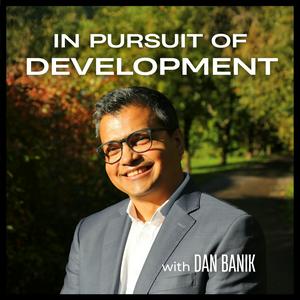
Get the free radio.net app
- Stations and podcasts to bookmark
- Stream via Wi-Fi or Bluetooth
- Supports Carplay & Android Auto
- Many other app features
Get the free radio.net app
- Stations and podcasts to bookmark
- Stream via Wi-Fi or Bluetooth
- Supports Carplay & Android Auto
- Many other app features


In Pursuit of Development
Scan code,
download the app,
start listening.
download the app,
start listening.








